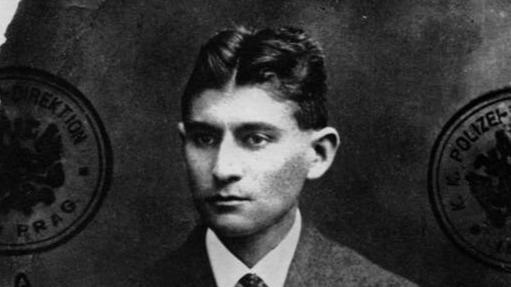The prestigious Gallimard collection publishes this Thursday, May 12, volumes III and IV of the works of the Jewish writer from Prague. Entirely retranslated under the direction of the Germanist Jean-Pierre Lefebvre, his non-novel texts show the mistrust of the novelist, despite being bilingual, vis-à-vis the language of Goethe.
The new French translation of the diaries and letters of Franz Kafka in the Bibliothèque de la Pléiade is an opportunity to re-establish the language of an author who is not always sure of his German, but who is on target. The prestigious collection of Gallimard editions publishes Thursday, May 12 volumes III and IV of the works of the Jewish writer from Prague (1883-1924), his non-fiction texts.
Everything was retranslated from A to Z, distributed among seven collaborators. The story of Kafka’s reception in French is that of a precursor, the writer Alexandre Vialatte, who discovered him in 1924 with Die Verwandlung (Metamorphosis).
Vialatte will be Kafka’s official translator for Gallimard, long untouchable. His translations were included in the first versions of the Pléiades, between 1976 and 1989, by this novelist who marked the literature of the XXand century by its atmospheres, its intrigues, its strange, harrowing style. These translations, sometimes faulty, were corrected in endnotes.
“Do it all again”
“Vialatte’s assessment is simple: he was a gifted writer, perfectly readable, but who freed himself a little from the original text, even a lot. So we had to do it all over again.explains to AFP the Germanist Jean-Pierre Lefebvre, who coordinated these new Pléiades.
This titanic work gave rise to two first volumes in 2018 (News and stories and Novels). He delivers today such essential works of Kafka as the letter to the father or the correspondence with the two women who marked him, Felice Bauer and Milena Pollak.
Read alsoA new translation of Kafka’s works in the Pléiade
Jean-Pierre Lefebvre, agrégé in German and normalien who has also translated Stefan Zweig and Sigmund Freud a lot, warns in the preface: “We, French-speaking readers, do not always have an exact idea of the Kafkaesque language. It is indeed much more direct than that of Vialatte.”
“This lexical sobriety is observed above all in speakers of a learned and less instinctive language, anxious not to risk conjugation errors or lack of relevance”he wrote.
Kafka was bilingual. In his youth, we spoke a lot of Czech at home. He had studied and worked (at an insurer) in German. Moreover, he learned Yiddish – and certain passages of the Pleiade maintain the Hebrew alphabet. Effective in professional contexts, his German, in literature, is wary of risk.
“A much simpler German”
“We did careful research, and found that he had a much simpler German, with less vocabulary, variations than other writers who did not shy away from repetition, whereas editors can recommend variations, on the contrary », explains Jean-Pierre Lefebvre to AFP. Example: a translator had initially written « I was badly dressed ». La Pléiade retains: « I was badly dressed. »
“Dodgy, that’s telling, but it doesn’t correspond to Kafka. He always keeps this caution. In German, there are somewhat perilous turns of phrase, the regimes of a certain number of prepositions which are complex, a syntax which makes it possible to construct sentences like real enigmas, resolved at the very end by a verb… Him, he avoid »explains the translator.
Another example: the astonishing frequency of an inelegant adverb, allerdingsliterally « in any case ». “This term has a fairly broad spectrum that justifies different translations into French, depending on the context. But it is better to limit the numberaccording to Jean-Pierre Lefebvre. It is a prodigious language, with simple means”.
One of Kafka’s most successful texts, which best illustrates him, is the letter to the fathernever read by the father in question, and miraculously saved by the executor Max Brod, who planned to make it disappear as it was virulent.
To this authoritarian man, Kafka launches: “This often predominant feeling in me of being nothing (a feeling that can also be otherwise noble and fruitful) is due in large part to your influence. I would have needed a bit of stimulation, a bit of friendliness, to have someone clear my way a bit instead of blocking it like you did. »
.

